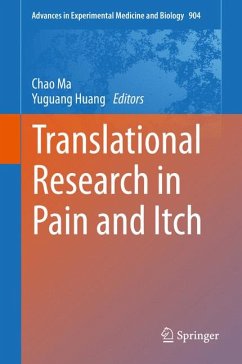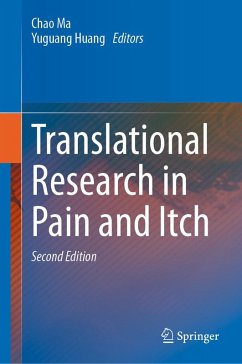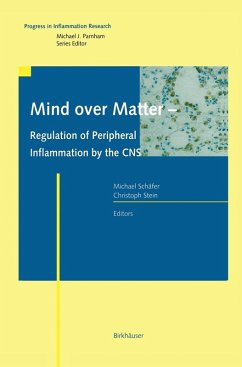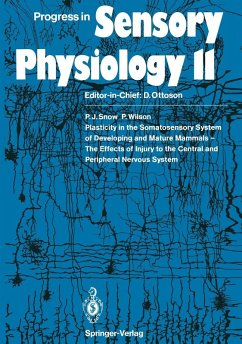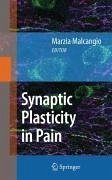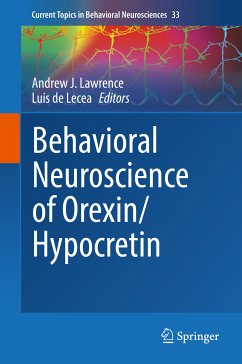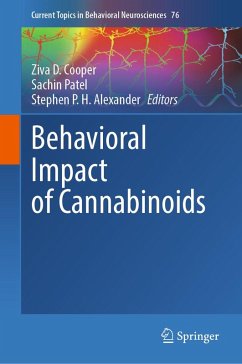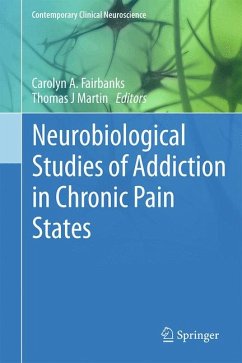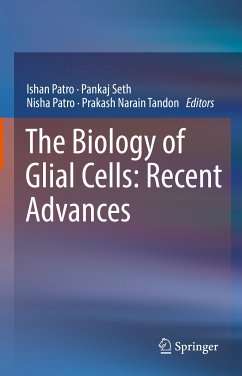
Neuroimmune Interactions in Pain (eBook, PDF)
Mechanisms and Therapeutics
Redaktion: Ji, Ru-Rong; Ji, Jasmine; Cheng, Jianguo
Versandkostenfrei!
Sofort per Download lieferbar
160,95 €
inkl. MwSt.
Weitere Ausgaben:

PAYBACK Punkte
80 °P sammeln!
As lifespans increase, more people around the world find themselves victims of chronic pain. In spite of this, treatment options continue to be severely limited. Anti-inflammatory drugs can only do so much, while painkillers like opioids have led to crippling addictions and fatal overdoses. The subject of the book is the role of immune cells, including glial cells, and neuroimmune interactions in chronic pain. The book begins by examining the preclinical and clinical evidence supporting the involvement of non-neuronal cells in chronic pain. It discusses the interactions between non-neuronal ce...
As lifespans increase, more people around the world find themselves victims of chronic pain. In spite of this, treatment options continue to be severely limited. Anti-inflammatory drugs can only do so much, while painkillers like opioids have led to crippling addictions and fatal overdoses. The subject of the book is the role of immune cells, including glial cells, and neuroimmune interactions in chronic pain. The book begins by examining the preclinical and clinical evidence supporting the involvement of non-neuronal cells in chronic pain. It discusses the interactions between non-neuronal cells and neurons in the regulation of chronic pain. It then presents the implications of these findings, including promising and emerging treatments such as specialized pro-resolving mediators (SPMs, such as resolvins and protectins), immune cell therapy, and complementary and alternative medicine, as well as neuromodulation and regenerative medicine, which may prove to be theturning point for hundreds of millions of patients world-wide who struggle to escape from the shadow of chronic pain. The book presents ground-breaking research that will alter current perspectives on chronic pain.
Dieser Download kann aus rechtlichen Gründen nur mit Rechnungsadresse in A, B, BG, CY, CZ, D, DK, EW, E, FIN, F, GR, HR, H, IRL, I, LT, L, LR, M, NL, PL, P, R, S, SLO, SK ausgeliefert werden.



